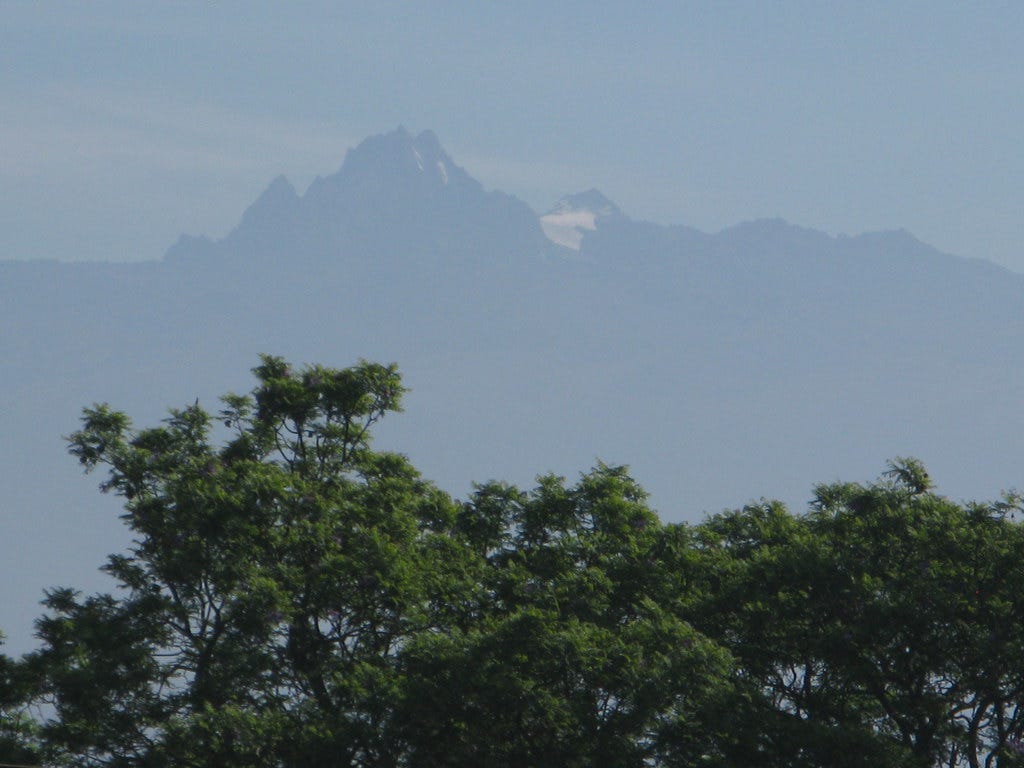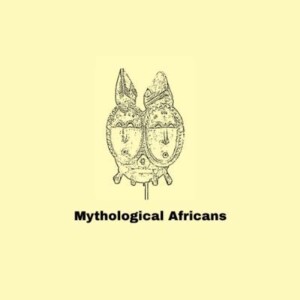
Hello Friends,
We close out the month with another foray into the landscape of folklore and place, this time with the Gikuyu (Kenya) account of how Kere-Nyaga or Mt. Kenya came to be.
This topic has been on my mind quite a bit recently. When you read mythology and folklore, you get a sense of the kinship people across the world have always felt with the natural world. You also get a sense of what has been lost since we turned away from these old stories to rely more and more on science and commerce to shape our relationship to the planet to which we belong. One of the biggest blows industrialization dealt to humanity was, indeed, severing the relationship between us humans and the land on which we live. With climate disaster after disaster already showing us the error of our ways, I ask myself often what repairing and re-inspiriting the relationship with nature would look like in our day and time.
I was fortunate enough to grow up in Buea, a small town nestled on the slopes of Mongo ma Ndemi ("Mountain of Greatness" AKA Mt. Fako or Mt. Cameroon). Mongo ma Ndemi is an active volcano in Cameroon’s southwest region. It is also the home of Efasa Moto, Mountain God of the Bakweri people. Mongo ma Ndemi’s eruptions and subsequent lava flows are believed to be his efforts to join his consort, Liengu la Mwanja, Spirit of the Atlantic Ocean on whose coast I attended school 30 minutes away in Limbe, a nearby town. It wasn’t until I moved to the US that I noticed that, perhaps because these two beings were permanent fixtures of my life, ever reliably present witnesses to my growth, I instinctively reach for nature, be it mountains or other land masses, water bodies, trees, or the sounds of wildlife, and when I can’t have those, to the sun or the moon, to ground and soothe me. Interestingly, while I did get to swim in the Atlantic, and play around in the forests at Mt. Fako’s base, I never attempted to climb the mountain itself, mainly because of the many superstitions associated with the ascent.
I believe we are past the time when fear-based system of taboos and such prohibitions should guide our relationship with nature, so I think an approach based on generating wonder, love, pride and science-backed understanding is best.
Do you know of any initiatives on the African continent or elsewhere which use traditional folklore and science to educate people about the land and the threats of climate change? Come tell us about it in the comments!
Can’t Get Enough? More on Folklore and Geography from MA:
The Desert in Ibrahim al-Koni's "Al Majus"
Kulika o Lwera: Folklore of Place in Jennifer Makumbi's "Kintu"
References
Facing Mount Kenya : the tribal life of Gikuyu by Jomo Kenyatta
Meanwhile…
Have you heard? “The Watkins Book of African Folklore” or the “Mythological Africans Book”, is now available for preorder! Click image for preordering options!
Mythological Africans is a reader-supported publication. To receive new posts and support my work, consider becoming a free or paid subscriber.
Get full access to Mythological Africans at mythologicalafricans.substack.com/subscribe
More Episodes
 2024-11-04
2024-11-04
 2024-10-28
2024-10-28
 2024-10-20
2024-10-20
 2024-10-14
2024-10-14
 2024-10-07
2024-10-07
 2024-09-30
2024-09-30
 2024-09-23
2024-09-23
 2024-08-19
2024-08-19
 2024-08-12
2024-08-12
 2024-08-04
2024-08-04
 2024-07-28
2024-07-28
 2024-07-21
2024-07-21
 2024-07-15
2024-07-15
 2024-07-07
2024-07-07
 2024-06-30
2024-06-30
 2024-06-23
2024-06-23
 2024-06-16
2024-06-16
Create your
podcast in
minutes
- Full-featured podcast site
- Unlimited storage and bandwidth
- Comprehensive podcast stats
- Distribute to Apple Podcasts, Spotify, and more
- Make money with your podcast
It is Free
- Privacy Policy
- Cookie Policy
- Terms of Use
- Consent Preferences
- Copyright © 2015-2024 Podbean.com






